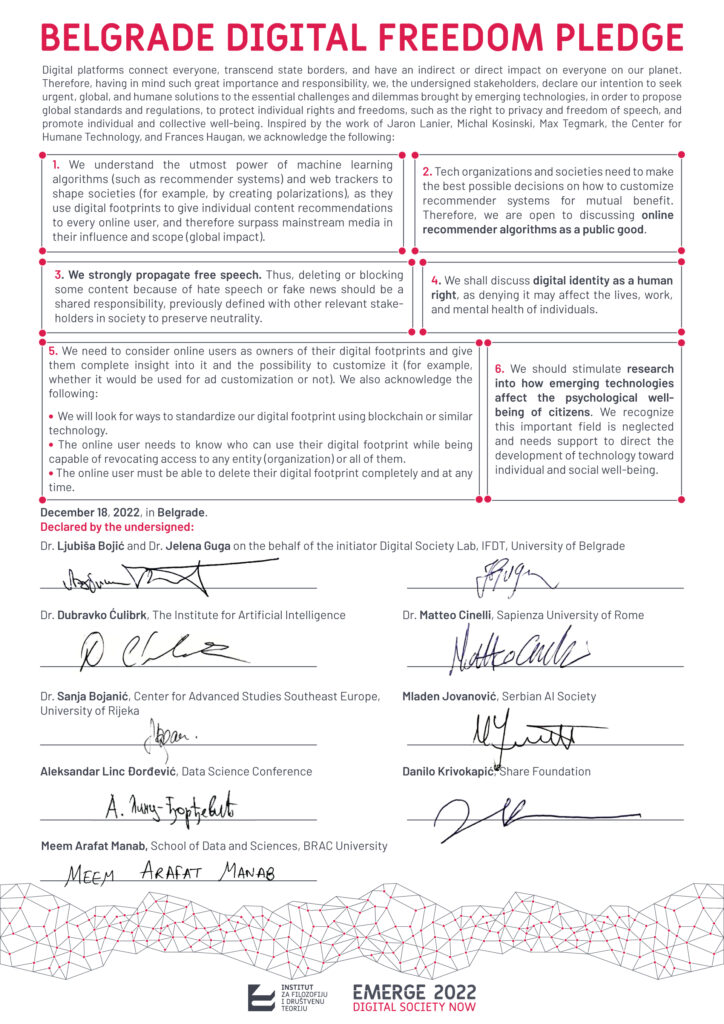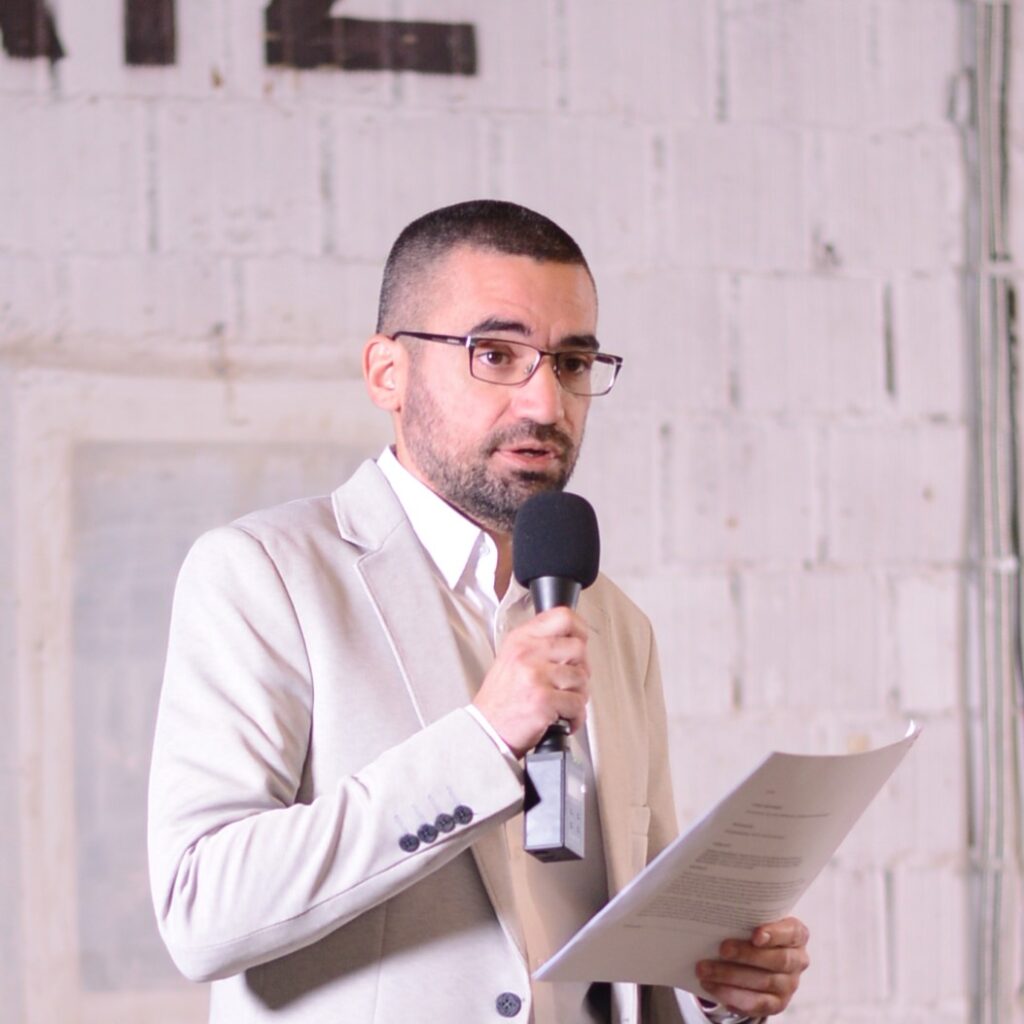
Ljubisa Bojic, PhD
Senior Research Fellow
Institute for Artificial Intelligence Research and Development of Serbia
University of Belgrade, Institute for Philosophy and Social Theory, Digital Society Lab
Complexity Science Hub Vienna
futures studies, communication science, AI alignment
CV & Bio Email Institute Lab Emerge Pledge LinkedIn Twitter
Media & Speaker Inqueries
Upcoming/News
15-17 September 2025
“Examining Temporal Stability of Large Language Models: A Comparative Study on Social Stereotypes and Attitudinal Assessments” at the conference on Machines as (new) actors in digital communication: challenges and opportunities for science and society—Dresden University of Technology, Dresden, Germany
Read more >
1-2 September 2025
Core Group Meeting, COST ACTION CA23120, Religious Identity, Bullying and Wellbeing at School: A Transnational Collaboration—Msida, Malta
Read more >
21-23 July 2025
“How Prompts Shape Time-Based Consistency” at the research symposium on applications of LLMs in social sciences as part of the Lien International Conference on Good Governance 2025—Nanyang Technological University, Singapore
Read more > Agenda > Conference program >
6 July 2025
New research published in the Information, Communication & Society: 🚀 Exploring the Double-Edged Sword of the Metaverse: Addictive Potential vs. Therapeutic Promise 🤖🧠
Read more >
26 June 2025
💬🤖 How well can AI grasp what’s left unsaid in everyday conversation? Over tea in Vienna ☕️🇦🇹, we pitted GPT-4 and other language models against humans to see who reads between the lines best—and found that AI’s subtlety might now rival, or even surpass, our own! 🤯✨. Read more in our inside story for Research Communities.
Read more >
16-17 June 2025
Giving a talk on “Simulating Human Behavior with LLM-Based Agents to Develop Diversified Recommender Systems for Societal Well-being” at the Complexity Science Hub External Faculty Meeting—Vienna, Austria
Read more >
12-15 June 2025
Presenting research on AI-based health communication done at the International Communication Association Conference 2025—Denver, USA
Read more >
10 June 2025
Can AI really simulate understanding of context and implied meaning as well as – or even better than – humans? 🤔🤖 Our latest article, “Does GPT-4 surpass human performance in linguistic pragmatics?” 📄, explores how advanced language models like GPT-4 stack up against human participants in interpreting dialogue and implied meanings, using Grice’s communication principles.
Read more >
7-8 June 2025
Presenting research paper Playground for LLM-Based Recommender Systems at the Workshop on AI in Political Science: Past, Present, and Future, Fudan Institute for Advanced Study in Social Sciences—Shanghai, China
Read more >
1-5 June 2025
Presenting research paper on A Novel Model for Diversifying AI-Based Recommender Systems for Societal Well-Being at the Extended Semantic Web Conference 2025 (ESWC)—Portoroz, Slovenia
Read more >
30 May 2025
🤖 AI is becoming a go-to source for health info—especially when stigma is involved. Our Computers in Human Behavior study across Austria, Denmark, France, and Serbia found major cultural differences and highlighted trust as a key to AI adoption. 🤝
Read more>
30-31 May 2025
Attending Executive Board meeting, TWin of an Online Social Network Project Meeting (TWON), Horizon Europe Framework—Portoroz, Slovenia
Read more >
28 May 2025
Invited lecture on Human Autonomy in the Age of AI, Artificial Intelligence and Social Responsibility Conference as part of the Next Generation EU Project GDI UP – Green, Digital, and Inclusive University of Primorska—University of Primorska, Koper, Slovenia
Read more >

Does GPT-4 surpass human performance in linguistic pragmatics?
Read now >

Comparing large Language models and human annotators in latent content analysis of sentiment, political leaning, emotional intensity and sarcasm
Read now >

The dual impact of virtual reality: examining the addictive potential and therapeutic applications of immersive media in the metaverse
Read now >
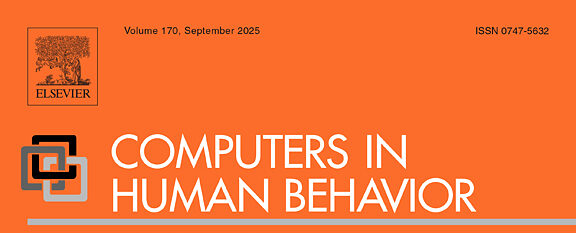
Help me, Doctor AI? A Cross-National Experiment on the Effects of Disease Threat and Stigma on AI Health Information-Seeking Intentions
Read now >
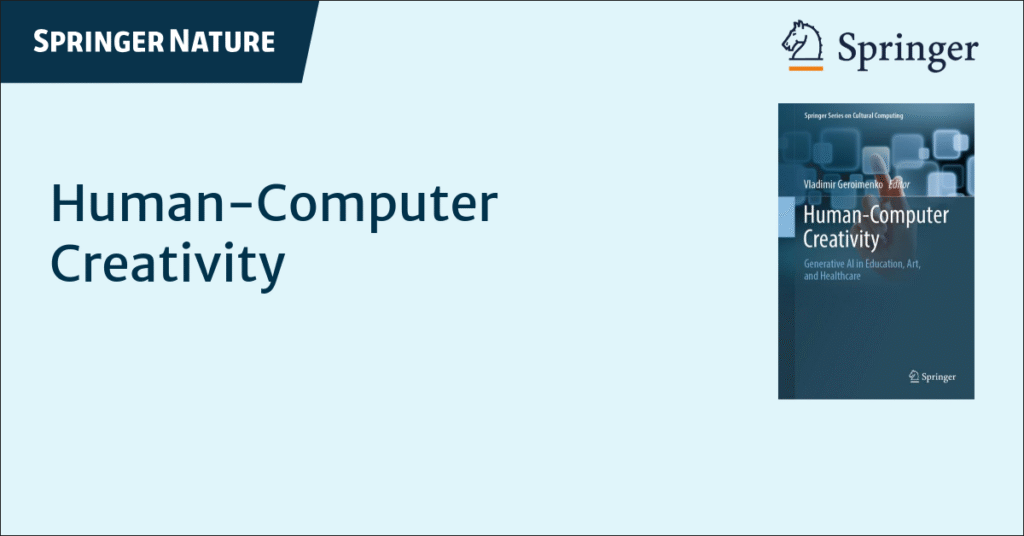
Human Doctors Versus AI Models: Advice Perceptions in Serbia, Kazakhstan, and Kyrgyzstan
Read now >

Signs of consciousness in AI: Can GPT-3 tell how smart it really is?
Read now >
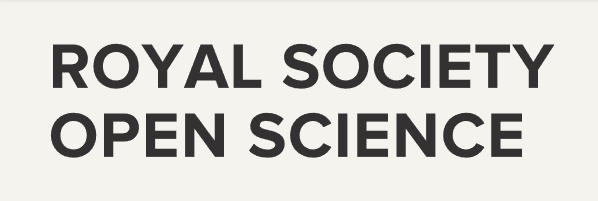
Personality testing of large language models: Limited temporal stability, but highlighted prosociality
Read now >
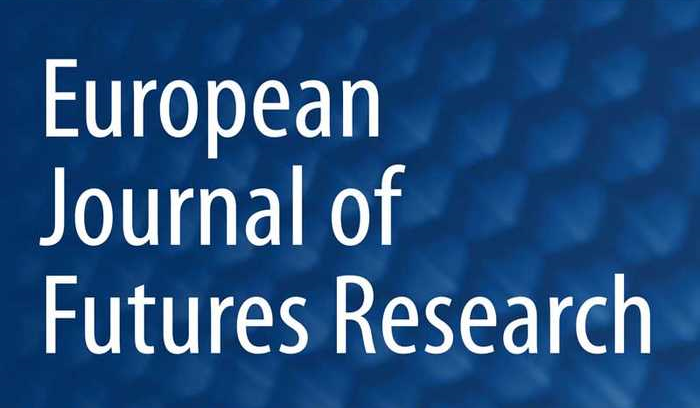
CERN for AI: a theoretical framework for autonomous simulation-based artificial intelligence testing and alignment
Read now >
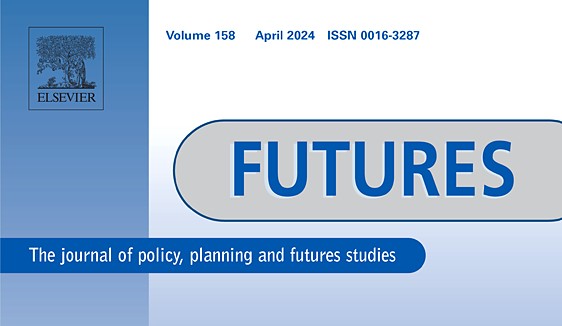
AI alignment: Assessing the global impact of recommender systems
Read now >

Coss-platform social dynamics: an analysis of ChatGPT and COVID-19 vaccine conversations
Read now >

Metaverse through the prism of power and addiction: what will happen when the virtual world becomes more attractive than reality?
Read now >

The Immersion in the Metaverse: Cognitive Load and Addiction
Read now >
Research Interests
AI alignment, recommender algorithms, artificial intelligence, metaverse, emerging technologies, digital humanism, new media addiction, blockchain, echo chambers, AI ethics, big data analytics, psychometrics, misinformation, negative news, social polarization, algorithms as public good, virtual identity as human right, societal impact of technologies

Ljubisa Bojic is a communication scientist, futurologist, and author of the papers CERN for AI: A Theoretical Framework for Autonomous Simulation-Based Artificial Intelligence Testing and Alignment, AI alignment: Assessing the global impact of recommender systems and Metaverse through the prism of power and addiction: What will happen when the virtual world becomes more attractive than reality? Bojic received his Ph.D. from the University of Lyon II, France in 2014 and is currently a senior research fellow at the Digital Society Lab, Institute for Philosophy and Social Theory, at the University of Belgrade, senior research fellow at the Institute for Artificial Intelligence of Serbia. He has written more than 50 scientific papers, some of them published in leading journals, such as the European Journal of Futures Research, Scientific Reports and Futures. Bojic was appointed to the United Nations Environment Programme Foresight Expert Panel by UNEP’s Chief Scientist Andrea Hinwood. He was a member of the Serbian government work group dedicated to developing ethical standards for artificial intelligence. Bojic is associate editor of Springer’s journal Humanities & Social Sciences Communications and serves as an executive board member on Horizon’s Project 2022 TWin of Online Social Networks. He is the founder of EMERGE: Forum on the Future of AI Driven Humanity and the initiator of the Belgrade Digital Freedom Pledge intended to stimulate widespread conversations about recognizing recommender systems as a public good and digital identity as a human right. Bojic was featured in the book The Edinburgh Companion to the New European Humanities as one of the founders of a new multidisciplinary approach that uses digital tools to inquire into the humanities. The current focus of Bojic’s research is the development of global AI policies and the alignment of AI with human values and wellbeing. He is frequently invited by the media to comment on the latest developments in AI from the perspective of social sciences and digital humanism. Bojic speaks at universities and events across the world about his latest research.

July 3, 2025
Ana Jovancevic writes for the leading global scientific media The Conversation about research co-authored by Bojic: AI might now be as good as humans at detecting emotion, political leaning and sarcasm in online conversations
Read now >
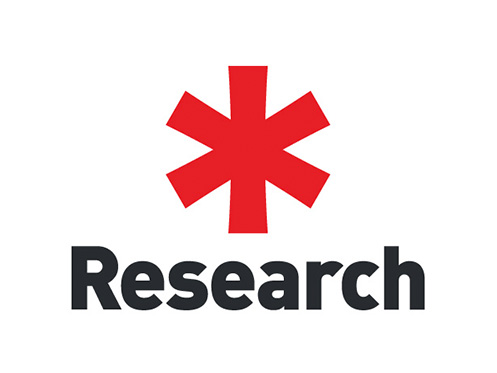
February 20, 2025
In his comment to Research Professional News, Bojic supported Von der Leyen’s plan to develop CERN for AI as a “substantial move towards responsible AI development” aligned with his 2024 theoretical framework for such a collaborative model. However, he emphasized the need for stronger integration of multidisciplinary research, ethical frameworks, and robust testing environments to address AI alignment challenges.
Read now > PDF >

January 23, 2025
As an outcome of the TwON Horizon project, Policy Handout features a recommendation based on Bojic’s research: algorithms should be designed to deliver a curated mix of content that balances emotional tones, avoids negative bias, and introduces users to diverse topic areas and political viewpoints, thereby fostering a more inclusive and creative digital environment.
Read now >

January 3, 2025
Recently published paper on artificial consciousness co-authored by Bojic was featured by Psychology Today in their insightful article, ’25 Ways AI Will Change How We Think and Feel in 2025.
Read now >
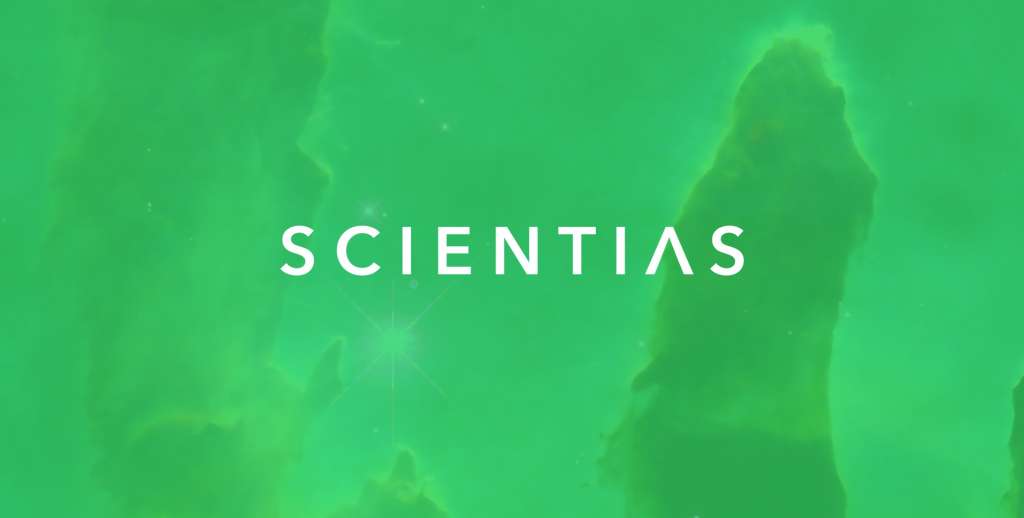
October 15, 2024
Research on personality traits in LLMs was discussed in an interview between Ljubisa Bojic, Bojana Dinic and Jeannette Kras from Scientias, the leading Dutch science portal.
Read now >
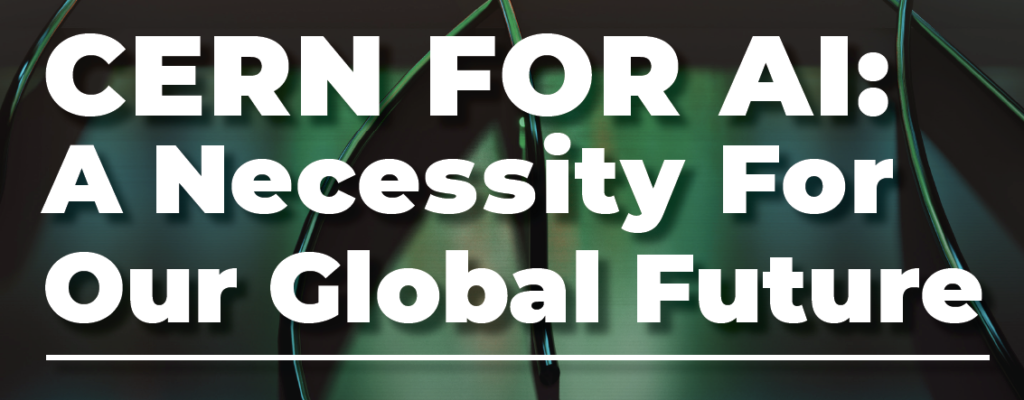
September 26, 2024
Bojic writes for Human Futures magazine, discussing topics such as AI Observatory, complex testing in virtual reality, and regulated diversity in recommender systems as necessary steps towards safe, robust, and accountable AI.
Read now >

August 31, 2024
Article “CERN for AI: a Theoretical Framework for Autonomous Simulation-Based Artificial Intelligence Testing and Alignment” was featured by the World Economic Forum’s Strategic Intelligence Insights.
Read now >

July 15, 2024
As a member of the UNEP’s Foresight Expert Panel Ljubisa Bojic contributed to the Global Foresight Report on Planetary Health and Human Wellbeing. The publication cites his research inqueries on AI’s capabilites in lingustic pragmatics.
Read now >
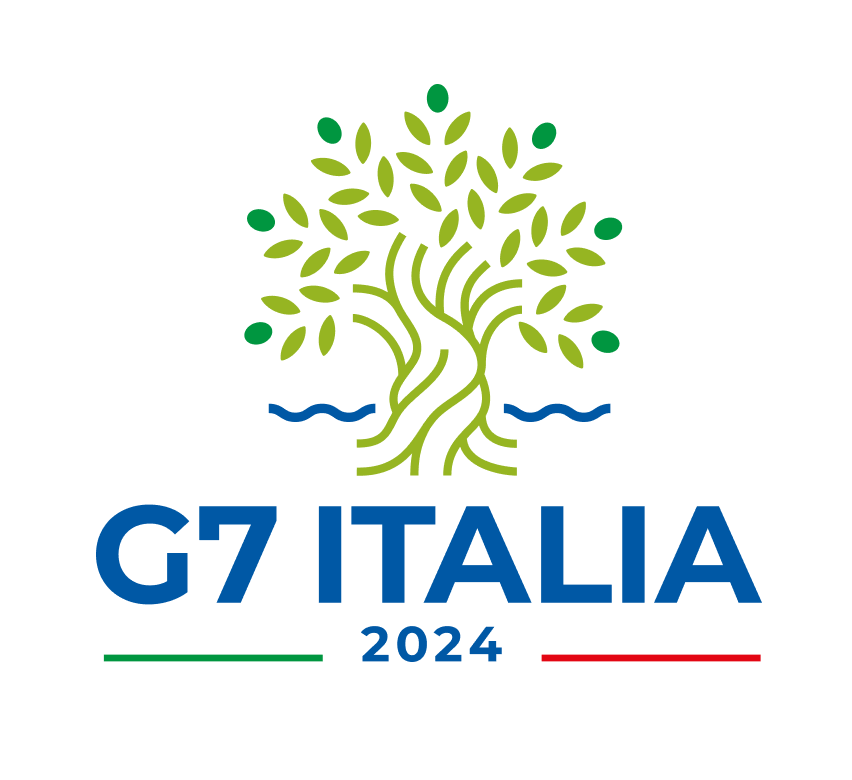
May, 2024
Bojic’s research was cited by the G7 Policy Brief “Towards Safe, Secure, and Trustworthy AI: Implementing the G7 AI Hiroshima Policy Framework”: experts have called for the establishment of a similar model (CERN for AI) based on international collaboration, underscoring the relevance and ongoing discussion about this governance model.
Read now >
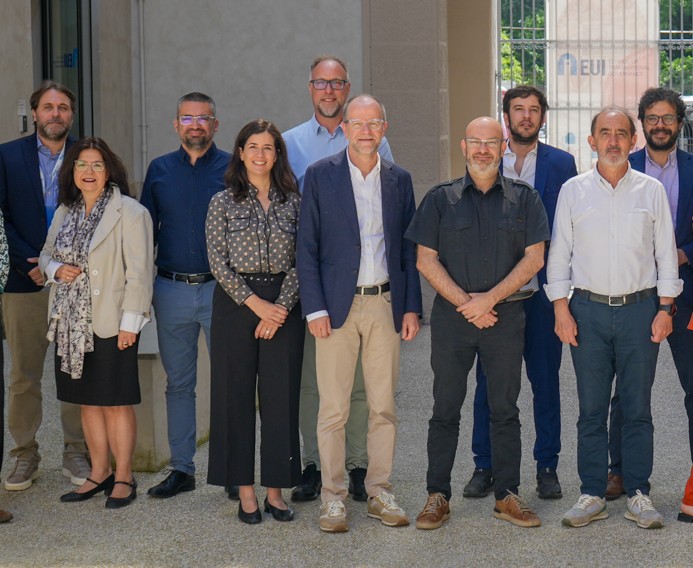
May 31, 2024
Bojic presented insights from his research under title “The Stuggle for Human Autonomy in the Age of AI” at the High-Level Policy Dialogue on Artificial Intelligence and Democracy discussing the priorities of the STG Chair in Artificial Intelligence and Democracy on a global scale—School of Transnational Governance, European University Institute, Florence, Italy
Read now >

March 1, 2024
Article CERN for AI co-authored by Bojic is cited by Forbes noting that AGI is a hypothetical future possibility. The article is about Elon Musk’s Claims that OpenAI Has Abandoned Pursuit Of ‘Benefit For All Humanity’
Read now >
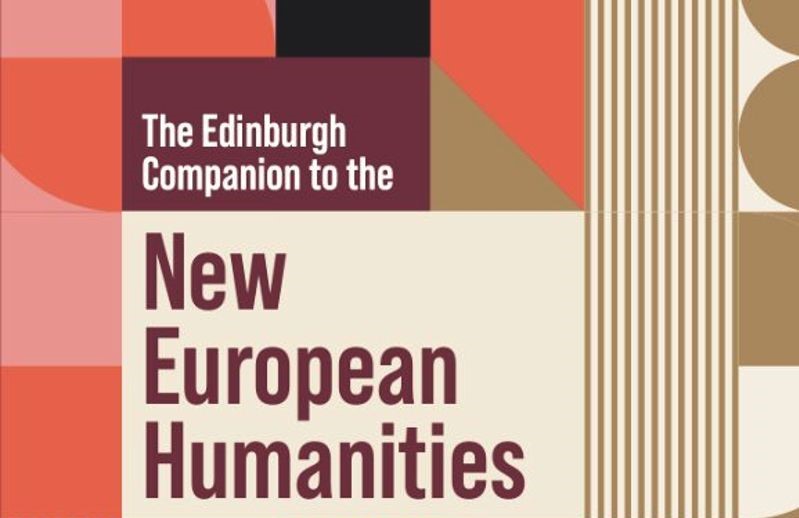
20 February, 2024
Bojic was featured in The Edinburgh Companion to the New European Humanities as the founder of a new multidisciplinary approach that uses digital tools to inquire into the humanities.
Read now >
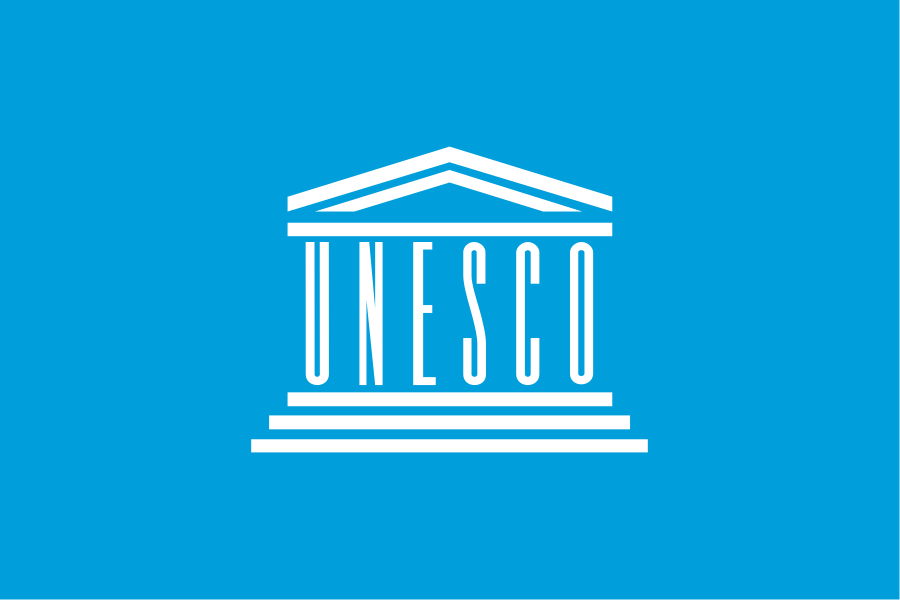
6 February, 2024
Bojic presents at the GFEAI 2024: Global Forum on the Ethics of Artificial Intelligence hosted by Slovenia under the patronage of UNESCO.
Read now >

June 29, 2023
Bojic voices his opinion for the Balkan Insight: AI may not need to launch a sci-fi-style ‘rebellion against humanity’ – but the gradual assimilation of humans and AI poses dangers all of its own.
Read now >
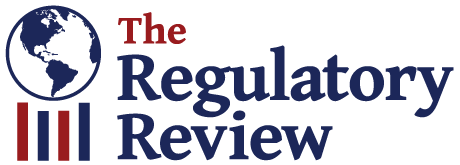
January 7, 2023
In the article “Regulating the Metaverse”, the Regulatory Review, reports: In a recent article in the European Journal of Futures Research, Ljubisa Bojic of The University of Belgrade examines developments in the rule-setting power of the metaverse.
Read now >
Guiding Thoughts
Bojic’s early inquiries detect light and mild addictions, which he considers as important in shaping contemporary society. Bojic focuses on AI powered recommender algorithms, as more effective than mass media in provoking addictions and social polarizations. That’s why recommender systems are labeled as the most impactful social force and means by which AI affects more than half of the world population.
Bojic’s long-term project is establishing the Media Reality Index to quantify emotions expressed by media and citizens online. The goal is addressing inadequate representation of social reality (negative news). In his most recent research, this idea is used to solve the issue of AI alignment, applied to recommender systems on social media, large language models, and, in the future, general artificial intelligence. Bojic proposes urgent algorithmic solutions for algorithmic challenges to promote AI adapted to human values and wellbeing.
See all videos >
Read Bio >
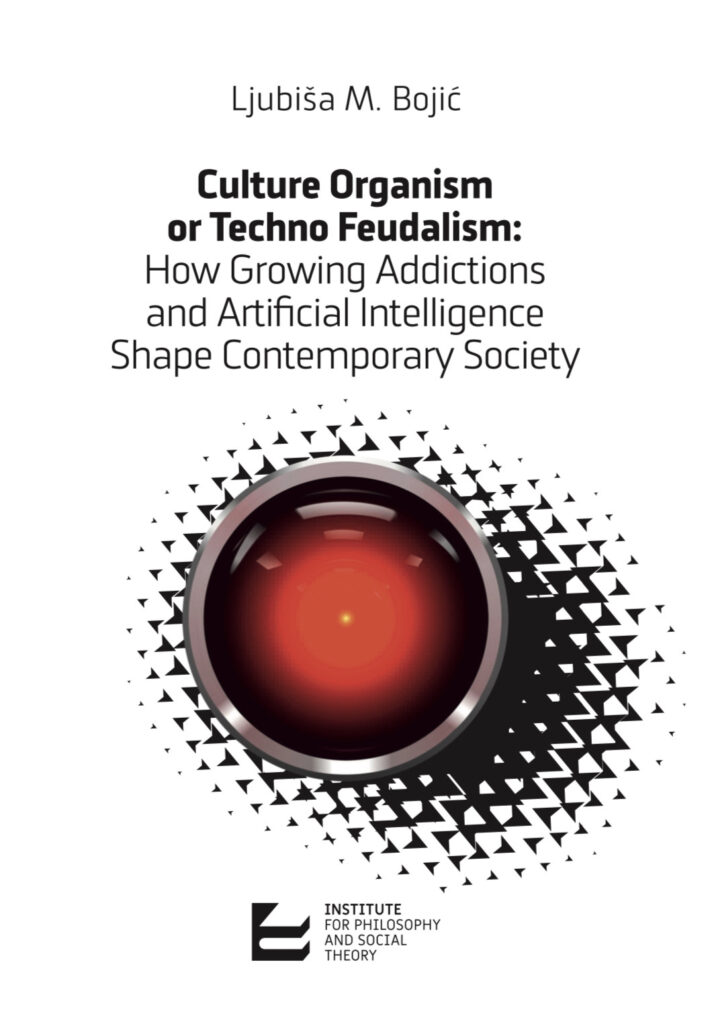
About the book
Culture Organism labels AI recommender systems as the most influential social force at present, that should be declared public good. The tech driven society is introduced as the Culture Organism, while the most significant social challenge is repression of the individual by the corrupt social agents. Analysis of light and mild addictions is presented, which is put into a wider context, identifying the outcomes as social polarizations, appearance of echo chambers, spread of misinformation, rise of populist leaders and decreased democratic capacity. Nature of media is examined in the context of addiction intensity to conclude that new media, such as smartphones, are more addictive than the older media, because they have more reality mimicking features. AI recommender algorithms have a similar role as the mass media. The difference is that the algorithms, which are used by social networking sites and various online apps, are more successful in prolonging time online users spend in front of their screens.
Download | Cite as ▼
Bojic, L. (2022). Culture Organism or Techno-Feudalism: How Growing Addictions and Artificial Intelligence Shape Contemporary Society. Belgrade: Institute for Philosophy and Social Theory.
